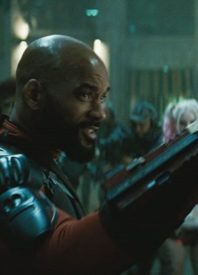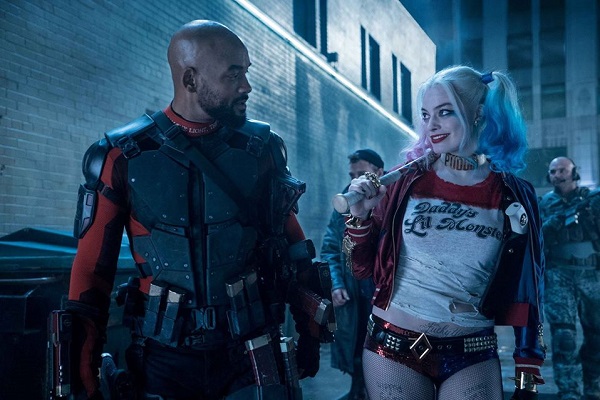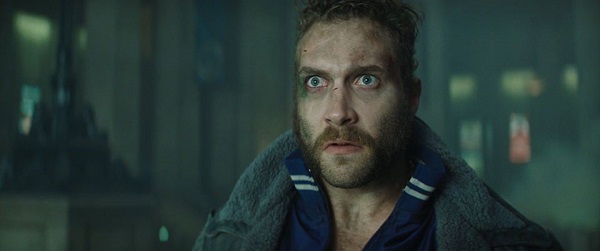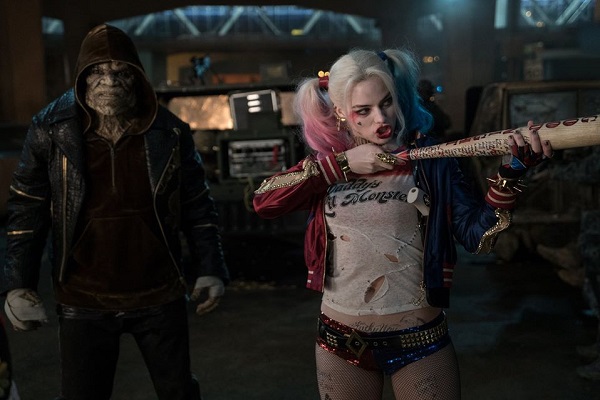
“I’m a big fan of Italian neo-realism and all that stuff”
-David Ayer
Spoilers Henceforth for “Suicide Squad.”
For the most part, Marvel won the comic book movie wars. This is not a controversial take. Just going by the only metric that really matters to these films, Marvel’s grand climactic story is currently the highest grossing film of all time, and Justice League exists, I guess. Marvel has consistently churned out movies that make a lot of money, while the early forays of the DCEU were, to use the words of this column, a Big Hot Mess.
And in response, the DCEU has tried very hard to shrink the confines of its universe. Birds of Prey comes out this week. It will likely be very silly, very loud, and make a very big amount of money. It’s reported budget is also less than 100 million dollars, following a trend for a company that would probably now uphold the very poor subject of the last Big Hot Mess — Joker — as its crown jewel. The irony of Marvel becoming the company that makes the bright, happy, and creatively formless superhero films while DC makes the smaller, darker, intimate superhero films, should not be lost on anyone who has a semi-competent knowledge of comic history.
In light of the new creative direction at the other big comic book movie conglomerate, I feel compelled to return to the time where DC’s general content strategy seemed to be “let’s try catching up to this F1 with our tricycle.” I can only be speaking of David Ayer’s frantically rushed into production too early disaster piece: Suicide Squad.
One of the fascinating realities of this golden age of superhero films, is that the easiest way to understand the text is through its chronological relation to others. This is most easily seen from within Marvel’s “gotta catch ‘em all,” style narrative structuring, where each successive film introduces a new element that will, at most, be important to roughly two minutes of the next film, and yet somehow, feels absolutely crucial. It is also a crucial comparison across each company. The differences between Marvel and DC are minimal because they are both building off the same stock structure.
Think of this decade of superhero films like a classic soup recipe you may have. You’ve got all of your basic elements: your stock, your vegetables, and most importantly, your intended outcome. You want your soup to taste good. You also don’t want to serve the exact same soup every time, and so you adjust some of the extraneous elements. You fiddle with the spices. Maybe you substitute a white onion for a shallot, in order to make the soup more savoury. Maybe the shallot makes the soup too savoury, and thus, you go back to the white onion. You do all of this, while still keeping the base elements intact. This is the premise of the superhero universe, and by extension all cinematic universes in general; just enough deviation to feel original, without having to actually eat something different.
With this in mind, the real reaction point of Suicide Squad isn’t Batman v. Superman or Deadpool, it’s actually Guardians of the Galaxy, which is the secret reaction point for pretty much all superhero films after 2014. I once famously declared on a website that no longer exists that Guardians of the Galaxy would fail mere months before it wound up being the runaway hit of that summer (which is further proof that I am wrong about many things). I still stand by this prediction, because on paper, it makes perfect sense. If you believe that a niche comic set in the cosmic corners of the weirdest section of a comic book universe is the basis for a massively successful mainstream hit, then we should find a way to clone you and make you the studio head of every major film studio in the world.
Guardians of the Galaxy succeeds on a mainstream level precisely because the film’s central conceit is: “what if the real Infinity Stone was the friends we made along the way.” Somewhere along the way, this got lost in translation. The central conceit of Suicide Squad is several different things all attached to each other in very convoluted ways. Ayer supposedly wrote this in six weeks, which offers a grand narrative about many of the ills plaguing the film. This was concocted in the editing room and in the much ballyhooed reshoots. I cannot for the life of me imagine that Ayer really wanted his film to be about institutions of control, the humanity inside all of us, sacrifice, abuse, and the military industrial complex all wrapped up inside a Dirty Dozen style, mega-loud heist film like some kind of massive hyper-masculinity burrito.
One could probably write a book about the troubled production history behind Suicide Squad. Someone, Kim Masters at the Hollywood Reporter, ostensibly has. Here are the bullet points, delivered to you at light speed, much like the character introductions within this film. Ayer had six weeks to write the film, which was rapidly moved into production to fill a slate of dates for the burgeoning DCEU. After a tepid response to Zac Snyder’s Batman v. Superman: Dawn of Justice, executives felt a tonal shift was necessary to move from effusively dour to a mix. Multiple cuts and reshoots were used, most notably, a cut from a trailer company was incorporated to heighten the “you must have fun” atmosphere. DC declined to fund Ayer’s next project, what would eventually become Bright, a clear sign that despite all the assertions of support, behind the scenes things may have been more contentious.
This context fills in a lot of the gaps in some of the more befuddling choices present in Suicide Squad. By my count, there are roughly eighteen different needle drops in the film. Ten are used within the film’s heavily expository first half an hour or so, a rate of roughly three per minute. Each new pop song is also possibly the most obvious choice for each situation. Say what you want about Gunn’s music, at least he chooses pieces that are meaningful to him. Each needle drop feels like the film segmenting itself into progressively smaller chunks, like it’s providing just enough information to give you a flavour about said moment, but not enough to actually have it be meaningful. Kind of like a trailer.
Once you realize that Suicide Squad is basically a giant trailer, the film suddenly is coherent. Think of what a film would look like, sound like, feel like, if you were to stich together just over two hours worth of trailers. It probably comes pretty close to what Ayer’s film actually is. Seemingly endless exposition, frenetic cutting, visually and auditorily turning the entire film up to 11, it’s all designed to be sensory overload. The feeling that the film is randomly hitting skip on its Spotify playlist contributes heavily to this sensation.
Somewhere along the way, the team behind Suicide Squad concluded that half of these team members were uninteresting and that refocusing our attentions on two team members was a better decision. I honestly can’t tell if this was the right choice or not. The general structural issues plaguing the film feel much deeper than a corporate decision to focus on the two movie stars instead of the guy with the boomerang. Will Smith’s Deadshot and Margot Robbie’s Harley Quinn are the two who are the heart of film. Their stories feel the most fleshed out.
Their stories feel the most fleshed out because the other characters seem to be entirely composed out of stereotypes. And also, one of the dudes is randomly crocodile. Chase Mitchell’s very funny joke about the one-note racial profiling in the film drew a lot of flak in some circles (read: the replies to said joke) because there was a (plainly poor) argument to be made that the film was merely adhering to the necessary fidelity to the source material. His assertions, however, seem to grasp the fundamental issue in the construction of this film. The two most interesting characters are also played by the film’s two big Hollywood stars. The others merely seem to drown in their wake.
If there is a grand metaphor for what the very essence of this film is, it can be most easily recognized through the film’s treatment of Harley Quinn. Robbie provides the best performance in the film, I refuse to hear otherwise. She’s a wonderful screen presence in this otherwise ugly looking picture; one that’s specifically filled with colour, and adorned with a necklace that proves that between this and the ending of Joker, DCEU films just can’t get enough of referencing Xavier Dolan’s Mommy. The film also treats her despicably. All of her flashbacks feature some form of abuse at the hands of gangsta’ Joker (Jared Leto), she’s one of several women who are punched in the face for comedic effect, and the shorts she’s wearing seem to exist somewhere between actual shorts and a thong. Ayer’s camera drools over her, but also the film makes plainly clear to hammer home that she’s “crazy,” as if to suggest that you can leer, but you better not touch.
It’s depressing to watch. The one piece of lightness, is coated in so much ugliness that it becomes a slog to watch. There’s such an ugly weight to this film. It sits heavy on your heart. I doubt that the team behind Suicide Squad meant for this to be the case. I think they wanted their soup to taste good.
But what they accidentally stumbled upon might be inherently more fascinating. This soup doesn’t taste good—it tastes gross. Suicide Squad feels bad, and you should feel bad watching it, but also, you should feel the most bad about the fact that you can’t stop watching it. You slurp down your soup, walk to the front and beg, “please sir can I have some more.” They laugh at you as the dole it out onto your tray. Rinse and repeat. Play me out Panic! At The Disco.




